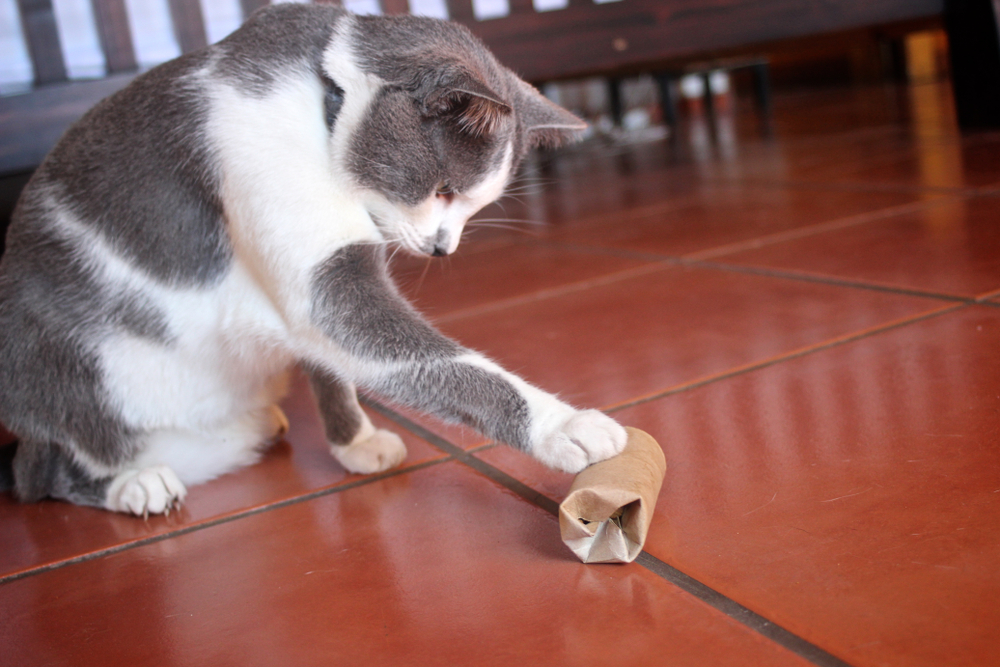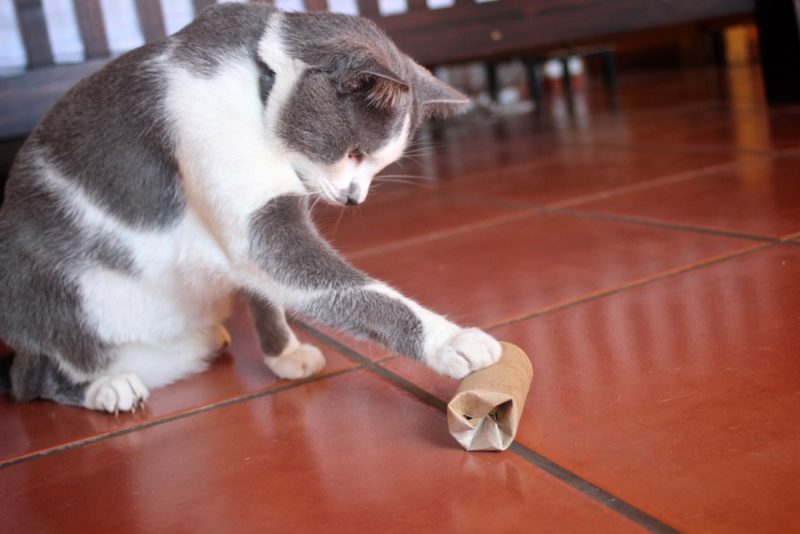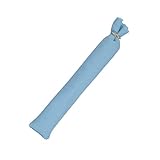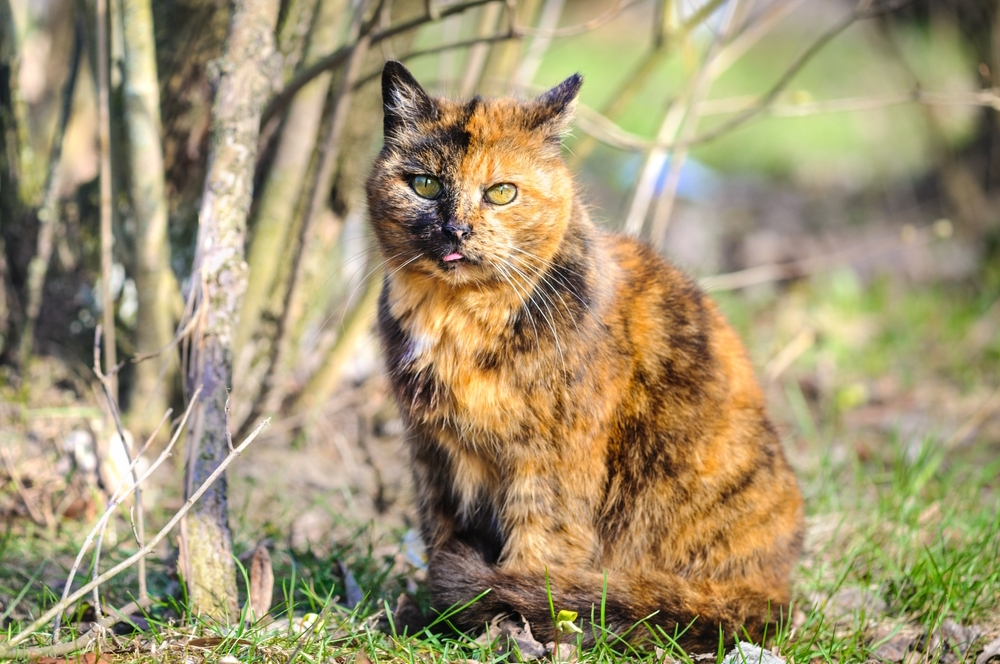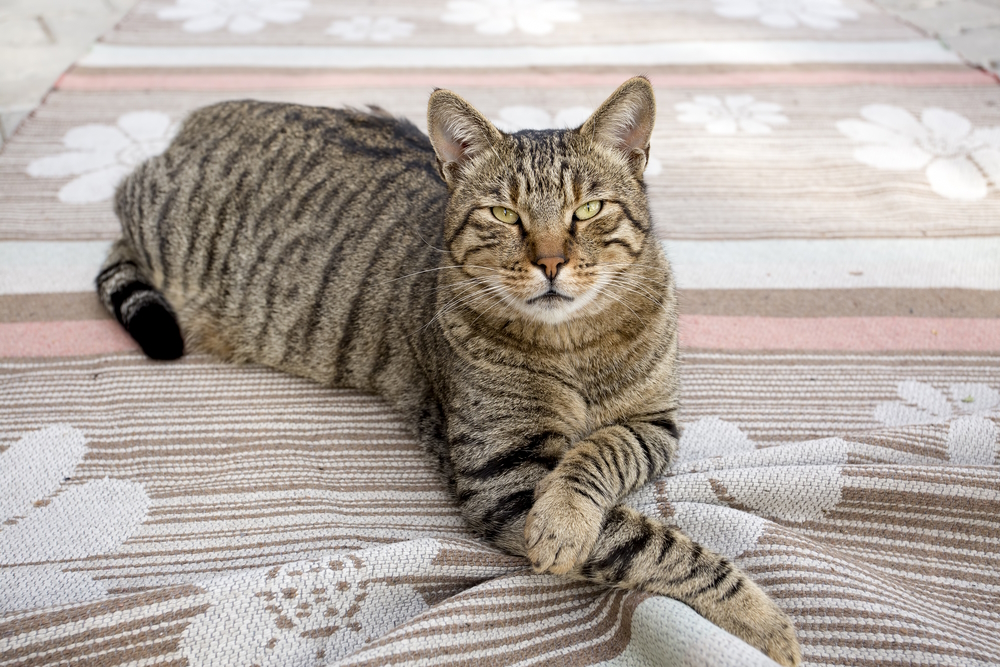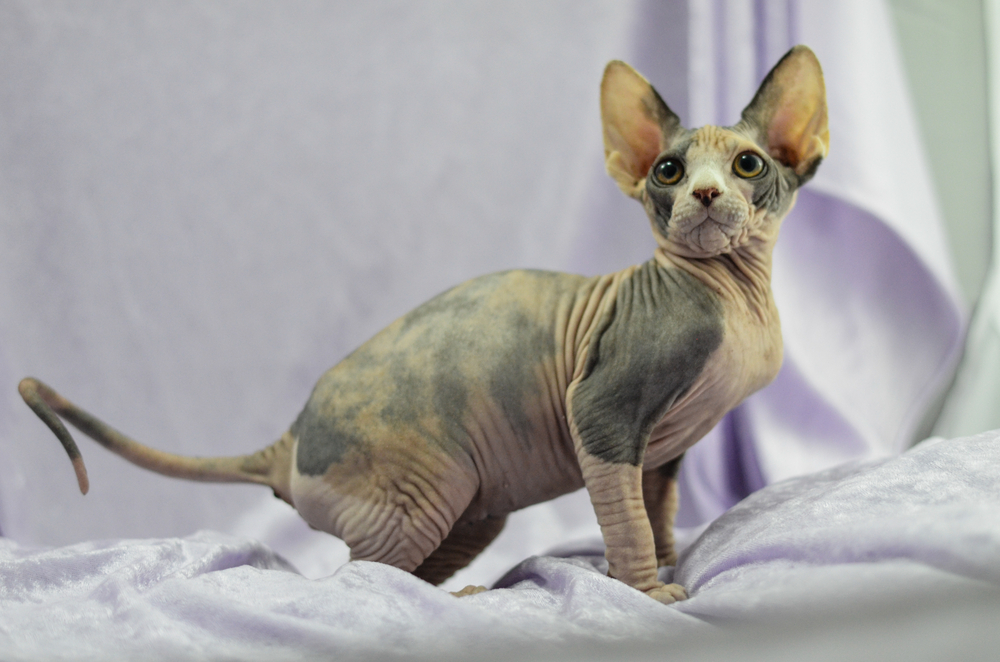There are thousands upon thousands of cat and kitten toys you can buy, but if you’ve ever watched an inquisitive kitty batting around a pen, chasing a ball of paper, or stalking the reflection your watch or phone makes on the wall, you will realize that keeping your little fluff ball entertained doesn’t have to cost an arm and a leg.
Below are some simple ideas for homemade kitten toys that have been tried and tested by my cats and me. You can easily make these yourself with items you probably already have at home, or with only a few items to add to your shopping list. So, if you’re wondering how to make a cat toy out of yarn or something of the like, we’ve got a couple of options for you just below. Better yet, all of these toys took less than 15–20 minutes to complete (not including time for glue to dry).
Important Safety Tip: You should always supervise your cats and kittens when they are playing with toys but also operate on the assumption that they may manage to disappear with, dismantle, or destroy anything you give them, so it is vital to make sure anything you use to make these toys has minimal to no risk of causing injury or damage.

The 5 Homemade Cat Toys
1. Catnip Kicker
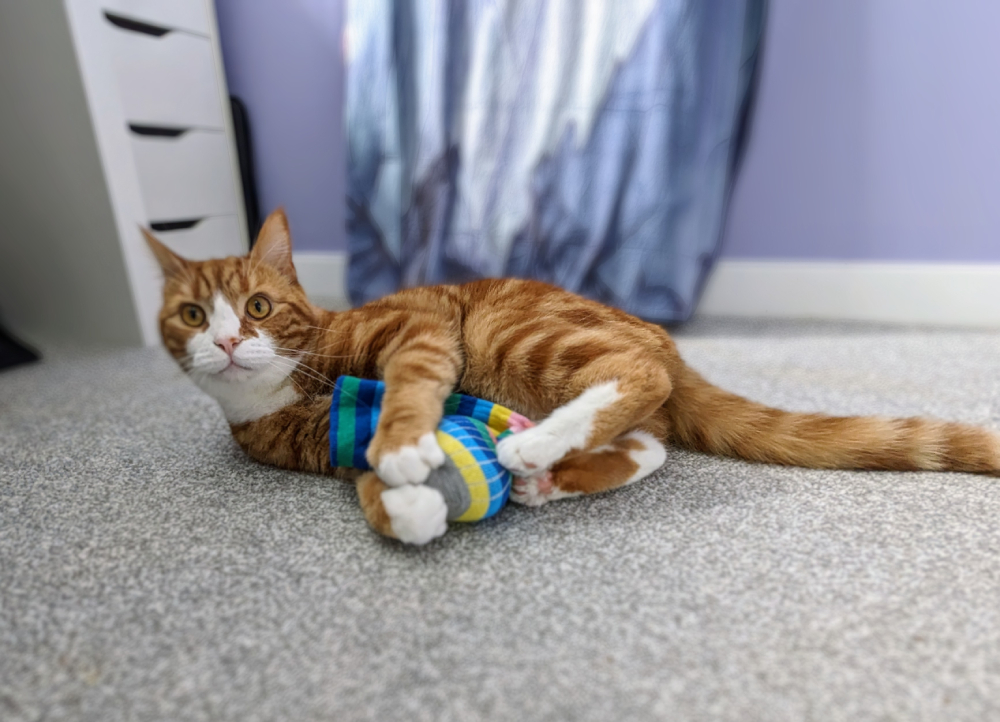
The only item you’ll need to buy for this toy is some catnip, which is something that’s worth having around if your cat is one of the 60% of felines that find this little plant intoxicating. Even those who aren’t affected by catnip will still find this toy fun to play with.
- Sock, tights, or pantyhose
- ½ cup of uncooked rice
- ½ cup of dry catnip
- Soda bottle
- Scissors
Method:
Start by grabbing some thin socks or thick tights/pantyhose. If you don’t have any thick tights, you can use both feet to create a double layer. If you are using tights/pantyhose, make sure there are no ladders/holes in the ends, and cut them approximately 1 foot above the toes.
Cut the soda bottle in half and dry it thoroughly—this will be our funnel. Mix the rice and catnip together, and use the funnel to pour this into the sock. The rice gives the toy a bit more substance, reduces the amount of catnip needed, and helps absorb any moisture.
Tie off the end of the sock just above the level of the catnip/rice, creating a firm (but not rock-hard) end. Trim the free end of the sock around 3 inches above the knot and let the fun begin!
2. Egg Carton Food Puzzle
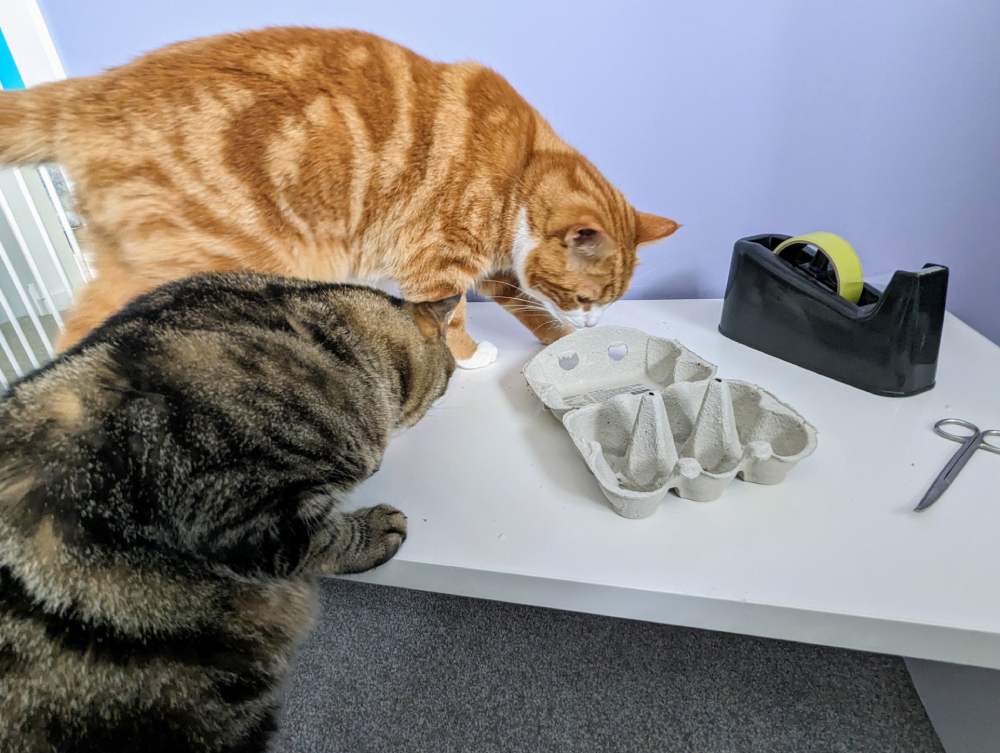
Boredom can be a huge problem for an animal with killer instincts and nowhere to let it out. Quality food served twice a day might meet your cat’s nutritional needs, but it doesn’t provide much in the way of mental stimulation. Food puzzles have become increasingly popular for indoor cats, providing a challenging way to offer treats or meals, but they can be quite pricey.
If you buy eggs in a cardboard carton, then you’ve already got the tools to put together some feline food puzzles that are easy to make but tricky to solve!
- Egg carton
- Scissors
- Cat kibble or treats
- Scotch tape
Method:
Use the scissors to make holes in the bottom of each egg section and use a finger to widen the hole to around ½ inch diameter. The size of the hole will depend on the size of the treats you’re using; you don’t want it to be too easy, but you don’t want it to be impossible!
Place the treats inside the carton and use the tape to seal it shut. Most cats will start to work this out, but you may need to give them a little hint to begin with!
3. Toilet Roll Food Puzzle
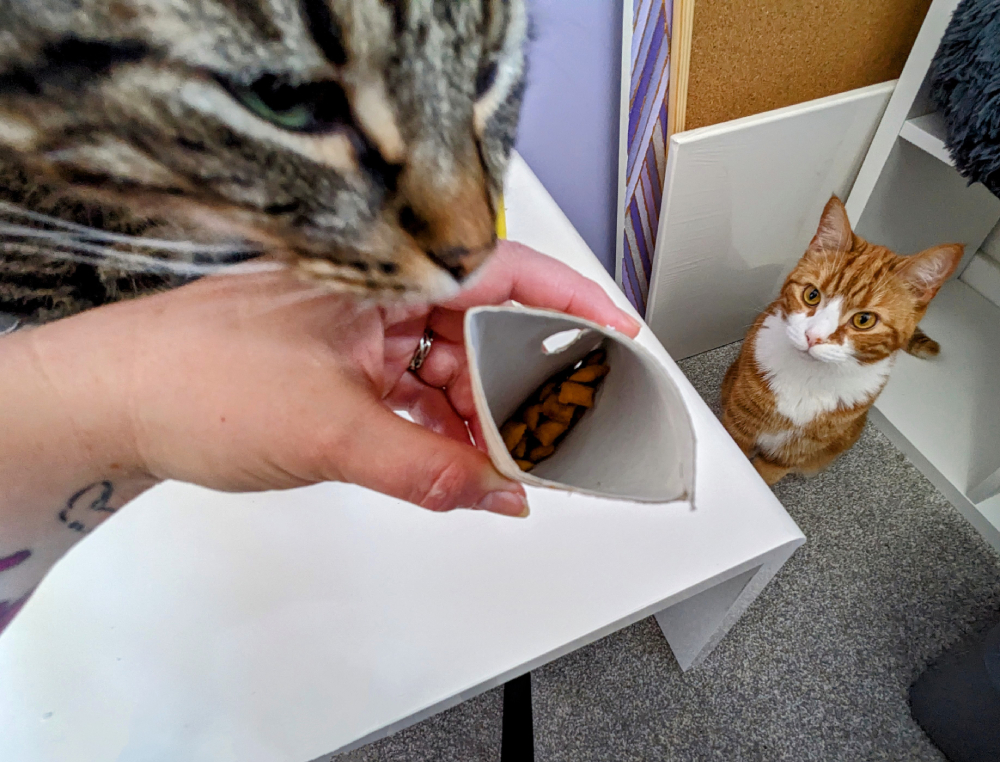
This one couldn’t be easier! All you really need is some scissors, tape, and an empty toilet paper roll and you’re well on your way to giving your kitten a new and exciting toy.
- Empty toilet roll
- Scissors
- Cat kibble or treats
- Scotch tape
Method:
Tape one end of the roll closed. Make a hole about the size of your treats in the middle of the roll with your scissors, and then place the treats inside. Tape up the other end of the roll, and voila!
4. Unravelable Ball of Yarn
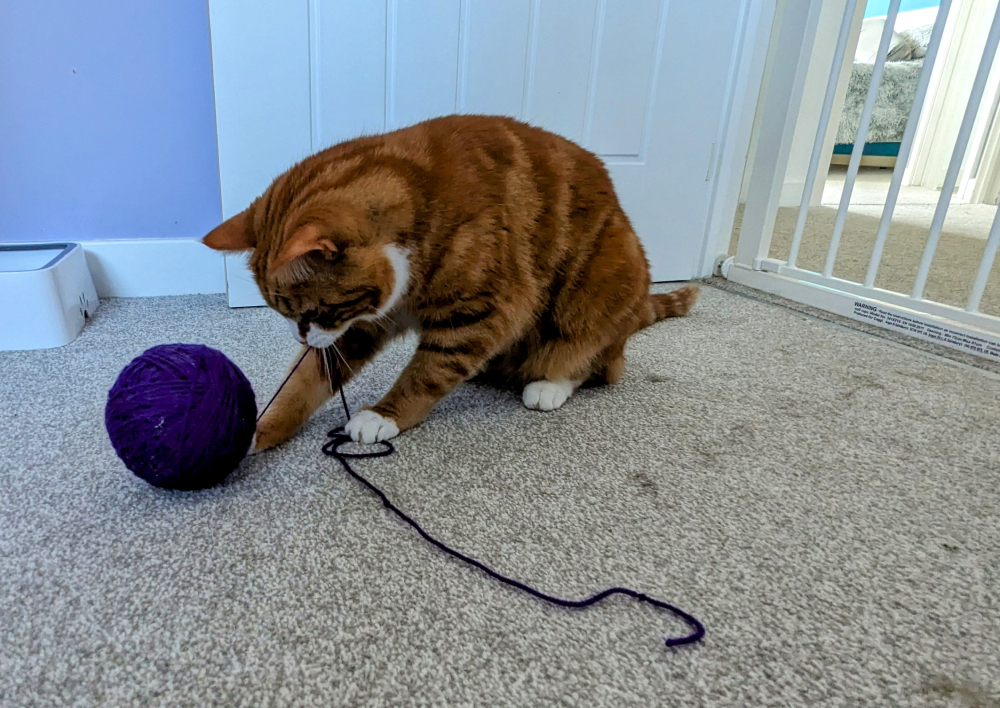
It’s a classic for a reason: no cat can resist that enticing ball of yarn, with its trailing thread. But the problem with this particular toy is that it gets messy pretty quickly, and if your cat ends up swallowing a length of string or wool, it can get stuck in the intestines, causing them to bunch up and become blocked.
This nifty little option mimics the allure of the yarn ball, but with the help of some glue, you’ve got a more resilient version of this classic.
- Styrofoam ball (3–4 inches) or florist ball
- Thick string, wool, or twine
- Craft glue (high-tack all-purpose glue)
- Large sewing needle (e.g., tapestry or wool needle, or a crochet hook)
Method:
Thread the twine onto the needle and carefully insert the needle through the middle of the Styrofoam ball. Remove the needle and tie a knot at the end of the twine. Place a blob of glue at the point where the thread enters and exits the ball and pull the knot firmly against the surface. This next bit can get a bit messy.
Slowly wrap the ball with your twine, placing blobs of glue along the way, adding more periodically as you get more coverage. Once you’ve covered the ball, cut the end of the twine with about 18 inches left over. Tie another knot close to the ball. Thread the twine through the needle again and take it back through the center of the ball. Tie a knot as close to the surface as possible, then make a few knots along the tail left over and allow to dry for 24 hours.
Now you’ve got a great way to keep your kitten occupied without leaving miles of yarn all over the house!
5. Catnip Fishing Rod
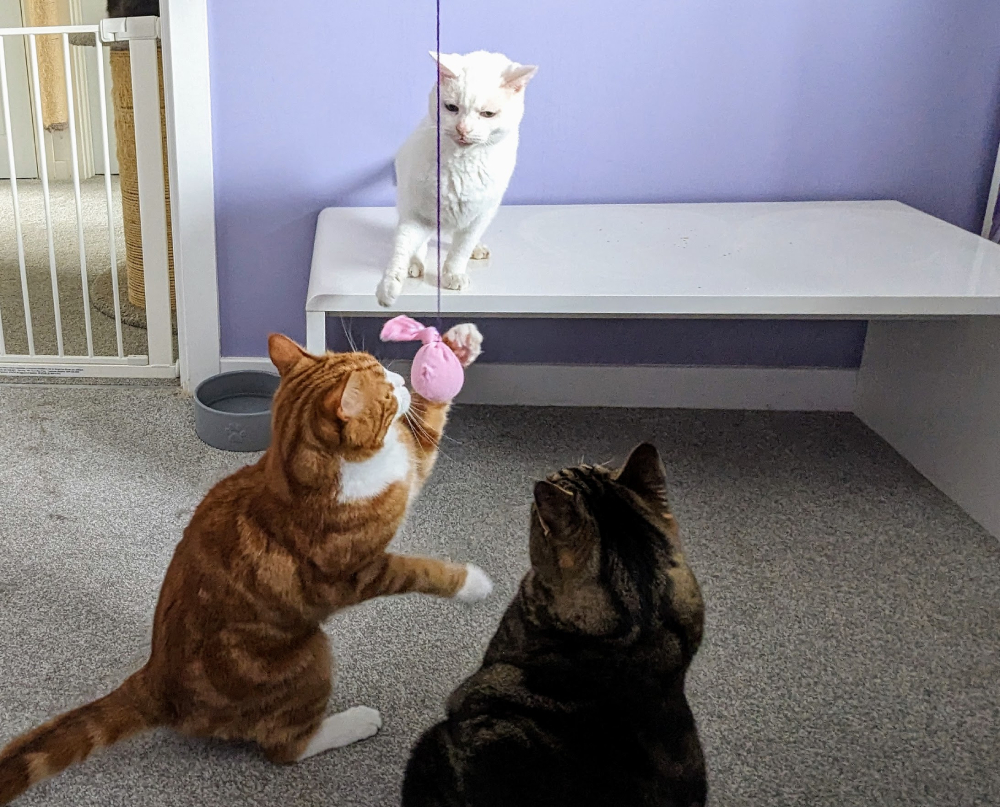
Another classic cat toy is the dangling wand or teaser toy. I’m using a 10-millimeter x 12-inch wooden knitting needle, which is perfect as it has a stopper at the end. Alternatively, you could use a chopstick. If you don’t already have any chopsticks at home, here’s your excuse to indulge in some Chinese takeout!
- 1 chopstick or thick knitting needle (around ⅓ inch is ideal)
- Ball of twine or yarn
- Craft glue
- ½ ounce (15 grams) of dry catnip
- Tights or thin sock
Method:
The Rod
Start by tying a double knot around the stick at around the halfway point, then apply a blob of glue around the knot. Apply a 1-inch bead of glue above the knot and start to wrap the twine tightly around the stick over the glue, making sure to keep lots of tension on the string.
Go up and back two to three times over the same section, then apply more glue in 1-inch increments up the stick, wrapping the twine tightly over it. Loop the end of the twine around the stick and place a double knot to tie it in place, applying a blob of glue into the knot as you pull it tight. Leave to dry for 24 hours.
The Fish
Using the same method as with the catnip kicker, fill the end of your sock/tights with the catnip and tie off the end, leaving a 1-inch tail. Allowing approximately 2 feet of twine between your wand and the catnip “fish,” use a double knot to secure the twine around the fish tail. Alternatively, you can use a wool needle to thread the twine through the fish to make a more secure tie. Now you’re ready to go fishing—for kittens!
Lots of cats go bananas for catnip. If your cat is one of them, we recommend Hepper's durable, engaging Catnip Stick Toy! These sturdy toys come in several fun colors and feature bite-proof double bagging and 100% organic catnip fill. They're also handmade in the USA and designed to look like your cat's natural prey.
At Catster, we’ve admired Hepper for many years and decided to take a controlling ownership interest so that we could benefit from the outstanding designs of this cool cat company!

Final Thoughts
Kittens might have huge amounts of energy, but that doesn’t mean you need a huge toy budget to keep them entertained and out of trouble. With our homemade cat toys above, you can create several fun, new cat toys for your felines in a matter of minutes.
Featured Image Credit: jessjeppe, Shutterstock

